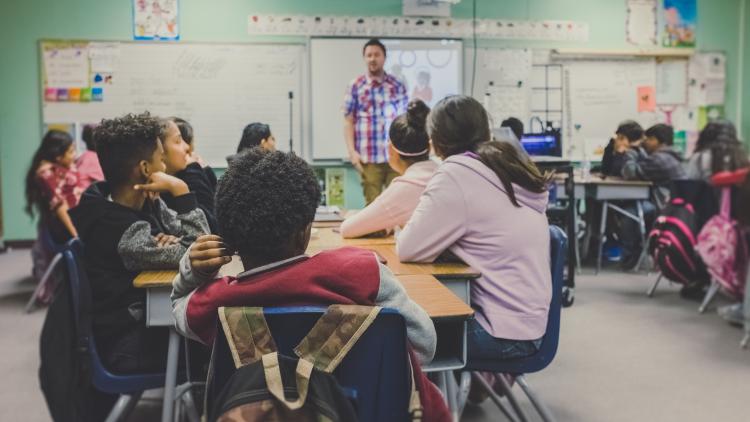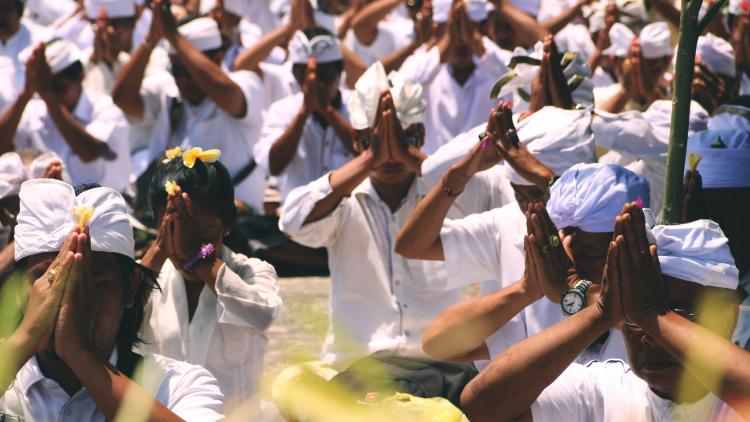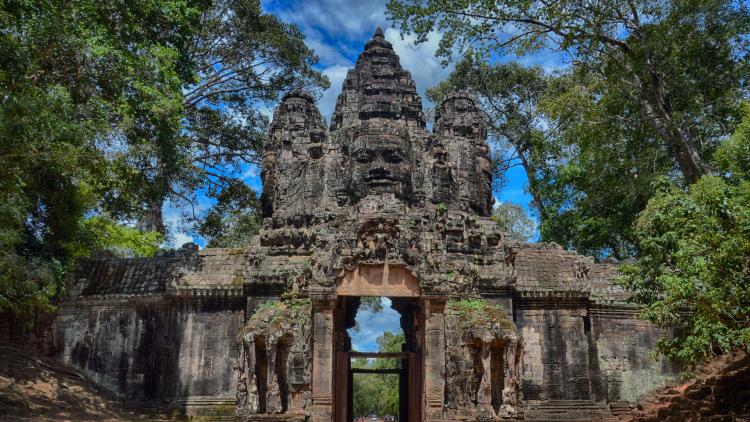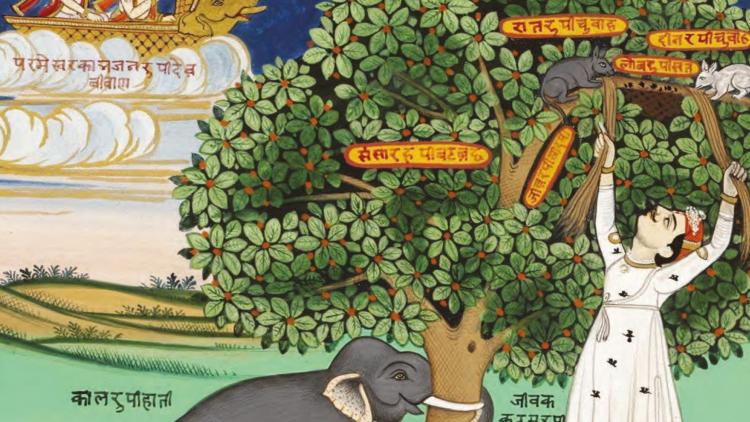BA History
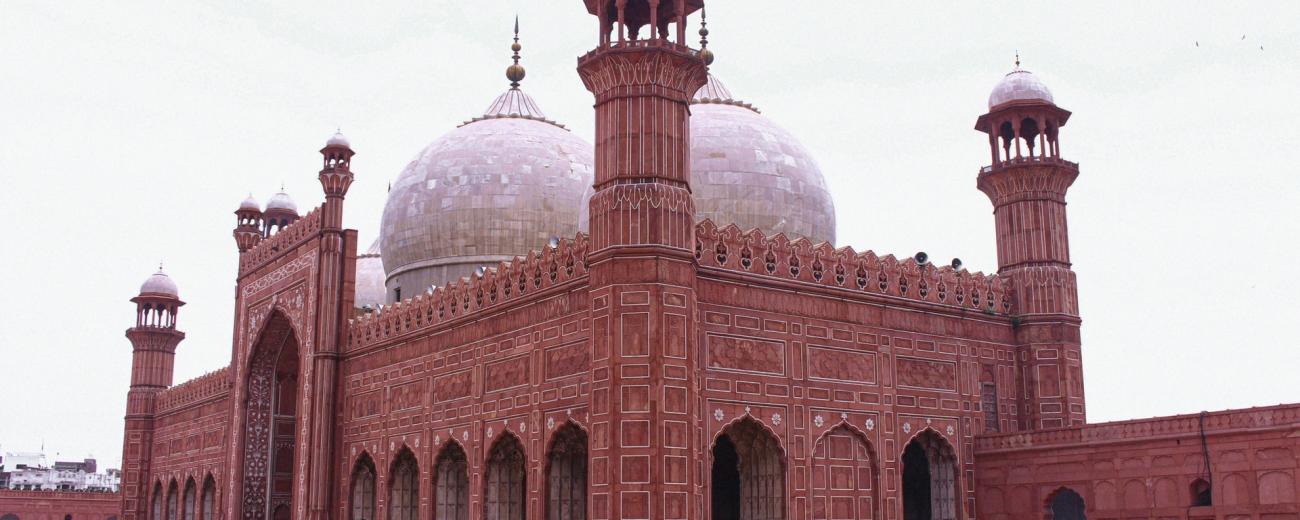

Key information
- Start date
- Duration
- 3 years
- Start of programme
- September 2025
- Attendance mode
- Full-time
- Location
- On Campus
- Fees
-
Home: £9,535
International: £22,870 - Course code
- V100
- Entry requirements
-
ABB
Contextual: BBB
-
See undergraduate entry requirements and English language requirements for international and alternative entry requirements.
Course overview
Our innovative BA History programme provides highly engaging treatments of not only historical events and historical periods in Africa, Asia, and the Middle East, but also of the very practice of history as an academic discipline itself. The programme’s curriculum is embedded in a variety of powerful conceptual frameworks used by our academic experts and our students, such as postcoloniality and decoloniality. BA History at SOAS, therefore, fosters a critical, global perspective that expands and deepens the frontiers of historical knowledge.
Our BA History programme encourages you to develop your knowledge of the regional histories of Africa, Asia, and the Middle East from these regions’ local perspectives and in these regions’ own terms. In this transformative, decolonial way, you will be able to then link these histories to the history of the world, and make critical sense of past, present, and possible futures.
Why study BA History at SOAS?
- History at SOAS is ranked 12th in the UK (QS World University Rankings 2023)
- SOAS is ranked 6th in the UK for employment outcomes (QS World University Rankings 2023)
- BA History scored above sector in learning opportunities (NSS 2023)
- Our average 20/21 Graduate Outcome Departmental score is 82.85% (HESA)
- We eliminated racialised awarding gaps at undergraduate level
Structure
Students take 120 credits per year composed of Core, Compulsory and Optional modules.
- Core modules: A core module is required for the degree programme, so must always be taken and passed before you move on to the next year of your programme.
- Compulsory modules: A compulsory module is required for the degree programme, so must always be taken, and if necessary can be passed by re-taking it alongside the next year of your programme.
- Optional modules: These are designed to help students design their own intellectual journey while maintaining a strong grasp of the fundamentals.
In the first year, students take introductory modules only, moving on to intermediate level modules in the second year, and then to advanced modules in their final year.
Beyond the compulsory modules, students choose from a variety of modules concentrating on specific regions of Asia, Africa, and the Middle East, transregional connections, or particular themes. This approach allows students to develop an in-depth knowledge of regional histories, to place these histories in comparative and global contexts, and to develop a range of critical research skills.
Important notice
The information on the website reflects the intended programme structure against the given academic session. The modules are indicative options of the content students can expect and are/have been previously taught as part of these programmes.
However, this information is published a long time in advance of enrolment and module content and availability is subject to change.
Year 1 - Compulsory
Year 1 - Guided options
Up to 30 credits from cross-regional or college-wide introductory modules.
Year 2 - Compulsory
The list includes the existing H201 and H216 modules, along with the newly introduced H202 one. Missing college skills module.
Year 2 - Guided options
30-60 credits from level 5 guided option modules.
Year 3 - Compulsory
Year 3 - Guided options - Special Subject
30 credits from H3** and H4** special subject
Year 3 - Guided options
30-60 credits from intermediate modules
Teaching and learning
Recommended pre-entry reading
- JR McNeill and WH McNeill, The Human Web: A Bird’s Eye View of World History (2003)
- John Darwin, After Tamerlane: The Rise and Fall of Global Empires (2007)
- CA Bayly, The Birth of the Modern World, 1780-1914 (2004)
- Benedict Anderson, Imagined Communities (1991)
- John Iliffe, Africans: The History of a Continent (2007)
- Albert Hourani, A History of the Arab Peoples (1991)
- Barbara D and Thomas R Metcalf, A Concise History of India (2002)
- MC Ricklefs et al., A New History of Southeast Asia (2010)
- Charles Holcombe, A History of East Asia (2017)
- J Black and DM MacRaild, Studying History (2007)
Programme learning outcomes
Knowledge
- Gain an outline knowledge of the history of the regions covered by SOAS, the global perspective, and the links between them.
- Understand different historical approaches and theoretical frameworks developed around the study of history.
Intellectual (thinking) skills
- Learn to assess data and evidence critically, from both historical sources and contemporary accounts, and to resolve problems of conflicting sources and interpretations. We combine this with equipping students with the skills to understand the complicated contexts within which historiography is produced and disseminated, and how this affects our understanding thereof.
- Understand the applicability of theories and analytical frameworks in the study of history and the limitations thereof in capturing complex and multifocal human experiences.
Subject-based practical skills
- Develop the ability to read and analyse a variety of texts and other sources, primary and secondary, learn how to cope with the fragmentary nature of the historical record which demand the use of a range of sources, and encourage reflexivity in their use.
- Design and execute a substantial, multi-stage research project, including preliminary formulation, project proposal, execution, modification, and final presentation. The project relies on students learning to synthesize their findings in order to advance firmly substantiated arguments, which acknowledge both the limits of the evidence and the contingency of the conclusions.
Transferable skills
- Access and evaluate data from a range of sources effectively and efficiently, practicing precision and caution in their use, and integrate data from multiple sources.
- Solve complex problems of analysis and synthesis between disciplines, articulate their position, and communicate their position and finding in a coherent way
Contact hours
Tutorials are sessions in which students are expected to present reports and take a lead in discussions.
Modules are taught through a combination of lectures and tutorials, usually one hour a week of each. Sometimes, one follows the other in a two-hour bloc. In certain cases, tutorials are held at a different time or on a different day than the lecture
Depending on the size of the class, some intermediate and advanced level modules are less strictly divided between a formal lecture and a tutorial discussion, and instead, the topic is briefly introduced by the lecturer, followed by a seminar discussion. Advanced level modules, which are usually taught in one two-hour bloc, often take this format.
Modules
Introductory modules
These are assessed through a combination of coursework assignments and, in certain instances, oral presentations on selected readings or topics. Introductory modules are not open to second- and third-year History students.
Intermediate-level modules
These provide specialised study in particular themes and in the history of particular regions, building on the introductory courses. With the exception of the methodological core course (H201) that is entirely assessed through coursework, intermediate-level courses are assessed by a combination of coursework and exams, taken in Term 3. The weighting of assessment between essays and examination varies, with coursework essays counting for between 40 per cent and 60 per cent of the total mark. For the specifics of each module see the individual module unit listings.
Advanced-level modules
Advanced-level modules, so called ‘special subjects,’ focus on the reading and use of original historical documents, so-called ‘primary sources’. The 300-level modules are in-depth explorations of a specific topic, taught in seminar-style. They are assessed in the same way as intermediate-level modules, i.e., a varying combination of essays and a final examination.
The History dissertation
In their final year, all single-subject History students have to write a 10,000 word dissertation, which will be a 500-level module.
SOAS Library
SOAS Library is one of the world's most important academic libraries for the study of Africa, Asia and the Middle East, attracting scholars from all over the world. The Library houses over 1.2 million volumes, together with significant archival holdings, special collections and a growing network of electronic resources.
Fees and funding
Fees for 2025/26 entrants per academic year
| Programme | Full-time | |
|---|---|---|
| Home students | Overseas students | |
| BA, BSc, LLB | £9,535 | £22,870 |
| BA/BSc Language year abroad | £1,385 | £11,430 |
See undergraduate fees for further details.
Employment
With specialised historical knowledge, an understanding of cultural sensibilities and skills in research and analysis, graduates from the Department of History are well respected by employers across private and public sectors.
Recent graduates have been hired by:
- Al Jazeera
- Amnesty International
- Bank of England
- BBC
- Blackstock PR
- Bonhams
- British Council
- British Library
- Dataminr
- Ernst and Young
- Goldman Sachs
- HSBC
- International Committee of the Red Cross
- KPMG
- Middle East Consultancy Services
- Ministry of Foreign Affairs, Republic of Cyprus
- Natural History Museum
- Publicis Media
- UNESCO
- United Nations Development Programme
Find out about our Careers Service.

